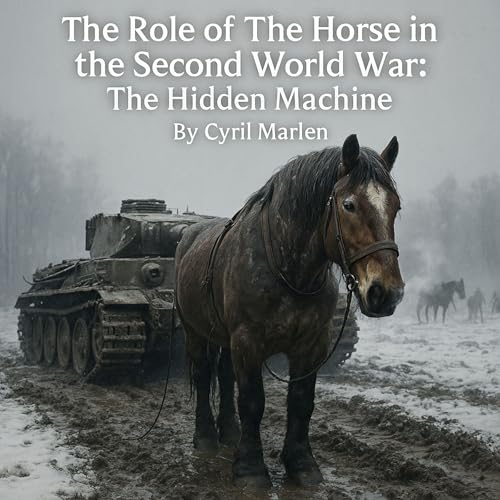
The Role of the Horse in the Second World War: The Hidden Machine
Failed to add items
Add to basket failed.
Add to Wish List failed.
Remove from Wish List failed.
Follow podcast failed
Unfollow podcast failed
Buy Now for $9.99
-
Narrated by:
-
Chris Bentley
-
By:
-
Cyril Marlen
About this listen
World War II is remembered as the war of machines: tanks breaking through the Ardennes, bombers darkening European skies, and convoys of trucks pushing supplies to the front. Yet beneath the roar of engines moved another, quieter power — millions of horses and mules, whose muscles pulled the very sinews of war.
The Role of the Horse in the Second World War: The Hidden Machine uncovers the forgotten story of these animals, restoring them to the centre of the world’s most mechanised conflict. Far from being relics of the past, horses proved indispensable on every front. Germany invaded the Soviet Union with 600,000 in harness; the Red Army mobilised 3.5 million more. Across Europe and Asia, animals hauled artillery, dragged wagons through mud and snow, and carried supplies where engines faltered.
This remarkable book explores:
- Myth versus reality — why blitzkrieg was never fully mechanised, and how horses remained essential even in a modern war.
- Logistics of muscle — the staggering scale of fodder, farriery, and veterinary chains that kept millions of animals in service.
- The Soviet cavalry-mechanised synthesis


